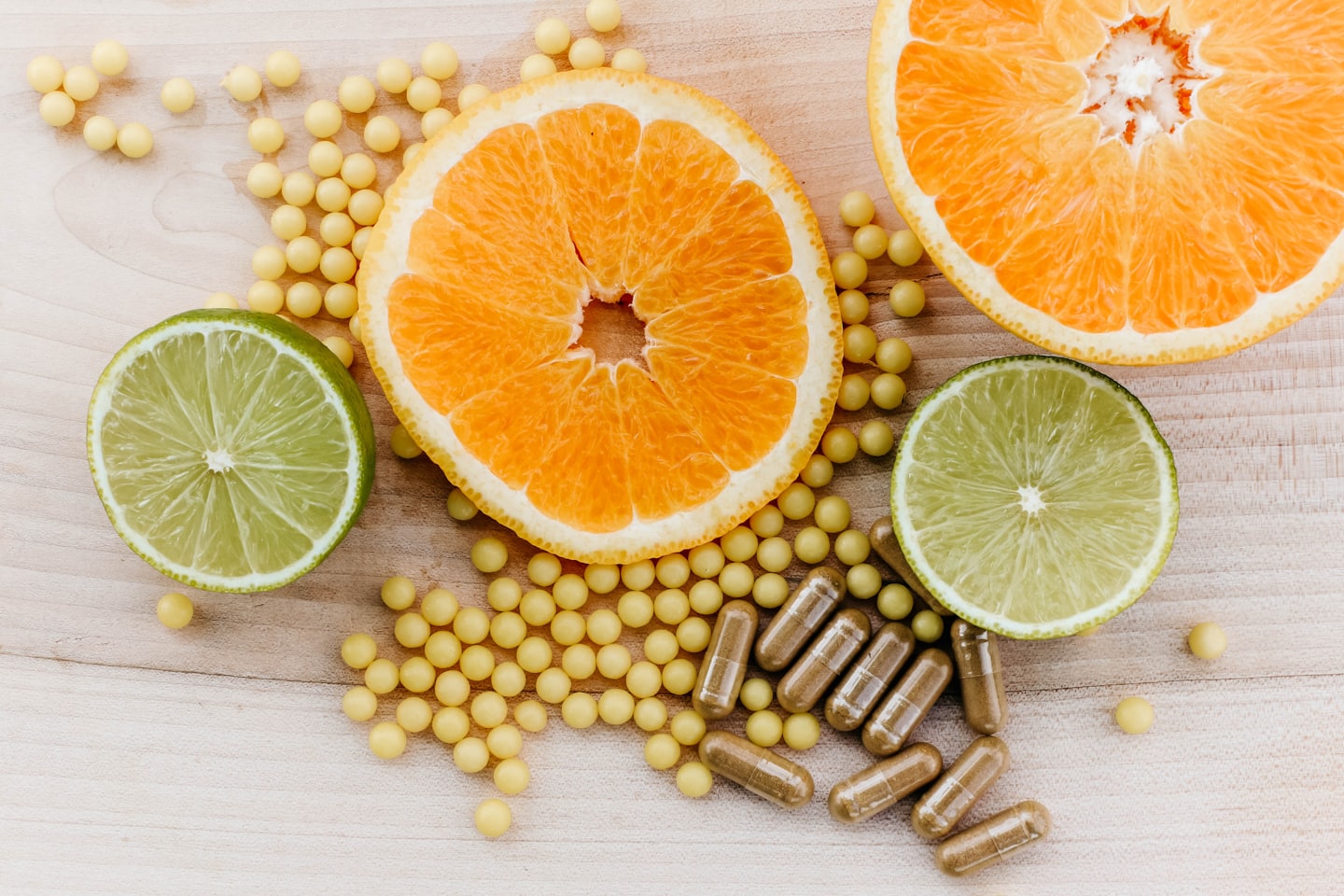Twój koszyk jest obecnie pusty!
Probiotics are live microorganisms, mainly lactic acid bacteria from the Lactobacillus and Bifidobacterium genera, which, when consumed in adequate amounts, provide numerous health benefits to the host (FAO/WHO, 2001). Probiotics naturally occur in various fermented foods such as yogurt, kefir, sauerkraut, or pickles. In addition to dietary sources, probiotics are also available as dietary supplements.
According to experts from the World Health Organization (WHO) and the Food and Agriculture Organization (FAO), probiotics, along with prebiotics, play a key role in maintaining gastrointestinal health and positively impact overall well-being (WHO, 2002).
Regular consumption of adequate amounts of probiotics may provide many health benefits, including: strengthening the immune system, alleviating symptoms of irritable bowel syndrome (IBS), reducing the risk of colorectal cancer, lowering cholesterol levels, improving digestive function (e.g., easing constipation or diarrhea), and supporting weight management (Kechagia et al., 2013; Merenstein et al., 2020). Probiotics may also aid in treating inflammatory bowel diseases and even neurological conditions such as autism (Tomova et al., 2019).


Prebiotics are food components that serve as nutrients for probiotic strains, supporting their growth and activity. Probiotics and prebiotics are often combined into one product, creating synbiotics. Synbiotics offer the combined benefits of both, delivering active bacterial cultures to the gut along with nutrients to support their development.
How Do Probiotics Work?
Probiotics positively affect human health in several ways (Gao et al., 2018; Kandasamy et al., 2018):
Strengthening the intestinal barrier – Probiotic bacteria produce compounds called mucins, which enhance the mucus layer protecting intestinal epithelial cells from stomach acid and digestive enzymes. They also form a biofilm layer that physically blocks pathogens from attaching to enterocytes.
Competing with pathogens – Probiotics compete with harmful bacteria for nutrients and adhesion sites. They produce organic acids and bacteriocins that inhibit the growth of pathogenic bacteria, fungi, and viruses.
Producing antimicrobial compounds – Probiotics produce hydrogen peroxide, carbon dioxide, lactic acid, and bacterial enzymes (e.g., lactase), which suppress the growth of harmful intestinal pathogens.
Stimulating the immune system – Probiotics increase phagocytosis, boost the activity of NK cells, and stimulate the production of IgA antibodies, strengthening cellular and humoral immune responses.
Balancing gut microbiota composition – Probiotics restore gut flora equilibrium by increasing beneficial lactic acid bacteria and reducing pathogens.
Aiding lactose digestion – Probiotics, especially Lactobacillus strains, provide the enzyme lactase, facilitating lactose digestion for individuals with lactose intolerance.
Reducing intestinal inflammation – Probiotics decrease the overexpression of pro-inflammatory cytokines and reduce immune cell infiltration into the intestines.
Lowering cholesterol absorption – Probiotics bind dietary and bile-derived cholesterol, reducing its absorption into the bloodstream.
Through these mechanisms, probiotics promote the health of the digestive system and the entire body.
When Should You Use Probiotics?
Treatment and prevention of diarrhea, particularly antibiotic-associated diarrhea. Probiotics help restore gut flora disrupted by antibiotics and prevent pathogen overgrowth.
Strengthening immunity – Probiotics enhance immune system activity, stimulate IgA production, and protect against bacterial and viral infections.
Alleviating IBS symptoms – Probiotics reduce bloating, abdominal pain, and irregular bowel movements while minimizing intestinal nerve hypersensitivity.
Supporting inflammatory bowel disease treatment – Probiotics lower intestinal inflammation by suppressing excessive inflammatory mediators.
Lowering cholesterol and improving heart health – Probiotics reduce LDL cholesterol and triglyceride levels, lowering the risk of atherosclerosis and cardiovascular diseases.
Improving glucose metabolism and insulin sensitivity – Probiotics help prevent insulin resistance and type 2 diabetes by enhancing glucose uptake and insulin synthesis.
Managing type 2 diabetes – Probiotics reduce glucose levels and improve metabolic parameters while preventing complications.
Relieving allergy symptoms – Probiotics reduce histamine release and IgE antibody production, easing symptoms like nasal congestion, coughing, or itchy skin.
Aiding lactose digestion – Probiotics supply lactase, making lactose easier to digest for people with intolerance.
Supporting weight management – Probiotics may aid in weight loss and prevent weight gain.
How to Choose an Effective Probiotic?
High strain survivability – The greater the percentage of probiotic bacteria surviving in the gut, the more effective the probiotic.
Diversity of strains – A broad range of strains (at least 10) ensures a wider spectrum of activity.
High CFU count – At least 10 billion active probiotic cells per daily dose is recommended.
Natural fermentation – The best probiotics are derived from controlled fermentation, rather than tablet forms.
Presence of prebiotics – Prebiotics, such as inulin or organic molasses, should be included to nourish the probiotics.
Natural origin – Opt for organic probiotics without preservatives, fillers, or additives.
EkoSynbiotyk, produced by ProBio Koło, contains 13 live and active bacterial strains with 15 billion CFU per dose. Thanks to a unique multi-step fermentation process, the strains exhibit high survivability (90%) in the intestines. The synbiotic also contains valuable prebiotics like organic molasses and Jerusalem artichoke. It is 100% natural, eco-friendly, vegan, and free from GMOs, gluten, and sugars (e.g., sucrose, fructose, maltose, glucose, and lactose). It is also free from preservatives and artificial colors.
All probiotic strains in EkoSynbiotyk are non-GMO, and all components are sourced from organic, certified crops. The product is vegan, free of animal-derived ingredients, and meets high ecological standards, ensuring both safety and effectiveness.
References
Gao X., Jiao N., Zhang Y. (2018). Dynamics of Gut Microbiota in Autoimmune Lupus and the Therapeutic Role of Probiotics in MRL/lpr Mice. Appl. Environ. Microbiol. 84(14).
Hill C., Guarner F., Reid G. et al. (2014). Expert consensus document: The International Scientific Association for Probiotics and Prebiotics consensus statement on the scope and appropriate use of the term probiotic. Nat Rev Gastroenterol Hepatol. 11(8):506-14.
Kandasamy S., Vlasova A.N., Fischer D. et al. (2018). Differential Effects of Escherichia coli Nissle and Lactobacillus rhamnosus Strain GG on Human Rotavirus Binding, Infection, and B Cell Immunity. J Immunol. 200(5):1705-1719.
Kechagia M., Basoulis D., Konstantopoulou S. et al. (2013). Health benefits of probiotics: a review. ISRN Nutrition. 2013:481651.
Lim S.M., Yoon S.J., Choi J. et al. (2016). Effect of Lactobacillus plantarum C29-Fermented Soybean (Cheonggukjang) on the Blood Glucose Level in Diabetic Mice. J Microbiol Biotechnol. 26(3):525-32.
Merenstein D., Foster J., D’Amico F. (2020). The Health Benefits of Probiotics. A Review of the Science. Nutrients. 12(2):469.
Tomova A., Husarova V., Lakatosova S. et al. (2019). Gastrointestinal microbiota in children with autism in Slovakia. Physiol Behav. 207:232-241.
Yan F., Polk D.B. (2011). Probiotics and immune health. Curr Opin Gastroenterol. 27(6):496-501.

